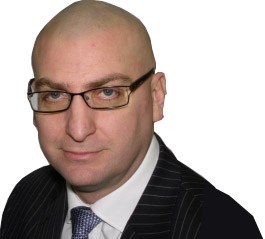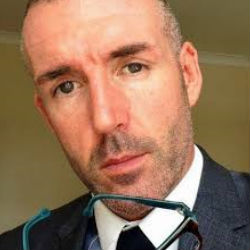Richard Gregorian, family law solicitor, explains the practice model which he advocates for enabling psychiatrists, psychological strategists and other mental health experts to have a far greater influence in determining the outcome of disputes involving children following marital or relationship breakdown whilst broadening their practice.
I do wholeheartedly believe, however, that the unwillingness of family lawyers to involve mental health professionals more intimately in their practices contributes greatly to these outcomes and is a very significant reason for parental frustration and disillusionment with their own legal representation.


I do not accept many of the accusations made by parents involved in the family justice system that family lawyers positively intend the negative consequences of their representation: most commonly, that family solicitors purposely manufacture delay and acrimony between the parents, or that they subordinate the interests of the children to winning cases or that they attribute a value to their service by creating feelings of helplessness in their clients through displaying a lack of empathy and understanding of the uniqueness of their client's case and their genuinely held concerns for their children.
At the core of these feelings is that the client neither feels listened to nor understood by their own legal team. This is unsurprising when at the centre of virtually every parental dispute are not the niceties of legal precedent and procedure but human decision-making, behaviour and interactional dysfunction.
Currently, experts are marginalised in the family justice system, being asked to prepare a report on one or more of the individuals involved in the case many months after the dispute first arose, and then losing contact with the case until just before the final hearing at which their testimony is required. For many experts who wish to actively assist individuals in resolving their personal difficulties objectively and holistically, this manner of working is frustrating and disengaging.
The purpose of involving mental health professionals from the very beginning of a case is to:
• Achieve a more objective and informed understanding of the "psychology" of the dispute and the individuals concerned through the taking of a full case history beyond the simple facts.
Enable the client's lawyer to formulate strategies to ensure that the parent’s concerns which underpin any negotiations, mediation or litigation are presented in the most objective and child centric way.
• Provide emotional and psychological support to the client to maximise the chances of them viewing and participating in the legal process as an objective advocate for their child.
This joint legal-psychological approach which I practise now satisfies a demand not only from clients and mental health practitioners alike, but more widely from the political environment which increasingly sees family breakdown as being an issue of public health.
The practice model which I invite mental health professionals to embrace now is one that:
• represents a fully integrated joint legal-psychological approach to family breakdown;
• does not depend upon any legal or policy changes to the present family justice system;
• involves mental health professionals not simply waiting for the next instruction from a lawyer, as they do with expert witness work, but facilitates a transformation in the system by enabling them to offer this service to their existing or new clients. It proceeds on the basis of a referral from the law firm or mental health professional of a client suffering marital or relationship difficulties involving children;
• recognises and deals with the important issues of the mental health professional transitioning from "objective therapist" to more (but not exclusively) subjective adviser, as well as the issues of confidentiality and consent;
• does not involve the mental health professional acting as an expert or in any other court appointed or indeed "public" role so far as the court or any other party to the litigation is concerned. Neither will the mental health care professional be asked to openly question the work of another;
• would include child psychiatrists and child psychological strategists who have been instructed by one of the parents since whilst this joint legal-psychological approach is directed at the parent, it is eminently child centric;
• would not be available to publicly funded clients, where it is a view of many within the family justice system that the available resources impede even the effective legal representation of parents; and
• I hope in time will be "institutionalised" by those associations representing mental health professionals, although the practice model does not depend upon it being so.
There is considerable interest and support amongst the mental health care community for my proposed practice model who not only see an opportunity to change the system for the better but being facilitators in that change through an expansion in their own business.
Richard Gregorian was formally a commercial law partner in a leading London firm of solicitors. As a result of being involved in his own international matrimonial litigation, it became clear to him that the application of family law could benefit from both an understanding of human decision-making and behaviour as well as commercial law standards of client service. He used a joint legal-psychological approach in his own case to great effect with the assistance of Mr Gavin Emerson. He now practises in family law full-time using this approach in all disputes involving children. Clients (including the very many parents he speaks to on a second opinion-pro bono basis), mental health care professionals, and politicians have all confirmed the good sense in adopting such an approach which works within all aspects of the present system.
For more information Richard Gregorian can be contacted at This email address is being protected from spambots. You need JavaScript enabled to view it. or through his firm's website at www.gelaw.co.uk




